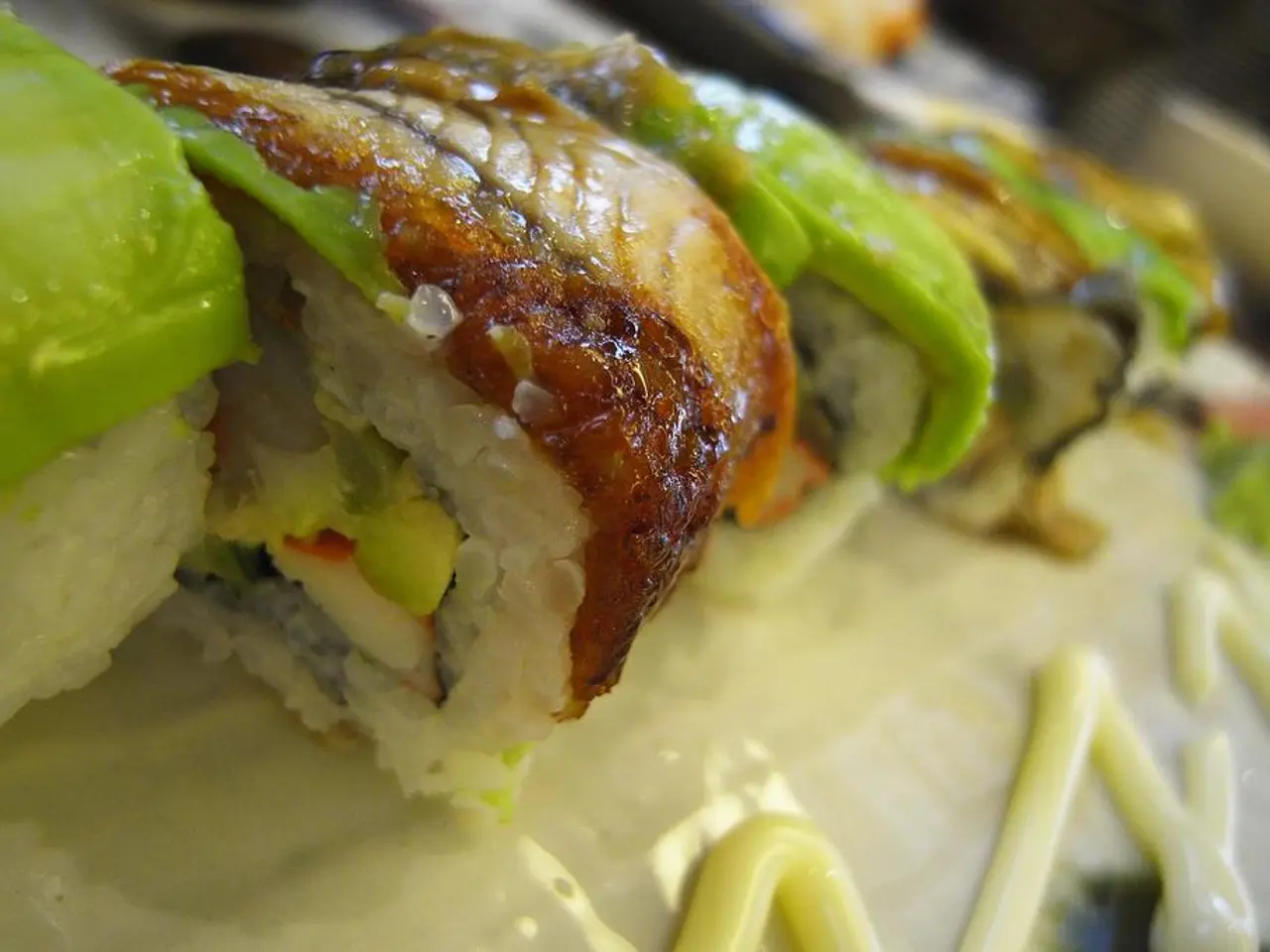Post-Colon Cancer Treatment Diet: Edible Options and Foods to Shun
After undergoing treatment for colon cancer, which may include surgery, chemotherapy, and radiotherapy, it's essential to focus on a diet that supports digestive recovery, maintains nutritional status, and reduces the risk of recurrence.
Key guidelines for post-treatment diet include:
- Eat small, frequent meals of soft, well-cooked, and easily digestible foods. This approach minimizes gastrointestinal irritation and helps manage symptoms like bloating, cramps, diarrhea, or nausea post-treatment [1][2].
- Prefer low-fiber foods initially, such as peeled and cooked vegetables, white bread, and pasta, as the digestive system may be fragile after surgery or radiotherapy [1].
- Emphasize high-protein and calorie-rich foods like lean meats, fish, eggs to help repair tissues and maintain muscle mass, especially important after surgery and chemotherapy [1][4].
- Avoid or limit foods that can irritate the gut, including raw cruciferous vegetables, pulses, fried and spicy foods, citrus fruits, caffeine, and fizzy drinks [1].
- Stay well hydrated with water, herbal tea, and other non-irritating fluids to prevent dehydration commonly caused by chemotherapy or radiation side effects [2].
- Adopt an anti-inflammatory diet rich in leafy greens, orange vegetables (carrots, sweet potatoes), berries, whole grains (brown rice, oats), healthy fats (olive oil, nuts), and lean proteins (fish, chicken). This diet resembles the Mediterranean diet and may reduce inflammation, improve survival, and reduce recurrence risk [3].
- Work with oncology nutrition experts to tailor dietary plans based on treatment side effects and personal nutritional needs, potentially including use of supplements like vitamins, minerals, or probiotics [2][4].
Dietary management after colon cancer surgery often requires gradual reintroduction of fiber as tolerated, meticulous chewing, and avoiding large or heavy meals to reduce bowel discomfort [1].
In summary, the approach is to consume small, frequent, low-fiber meals that are gentle on the digestive system initially, emphasizing protein and calories for healing, while moving toward an anti-inflammatory, nutrient-dense diet during recovery to support overall health and reduce recurrence risk. Hydration and professional nutrition guidance are also critical throughout post-treatment phases [1][2][3][4].
Post-treatment, a person's diet should continue to focus on good nutrition, and they may find it beneficial to eat foods that are soft, low in fiber, and easy to digest. It's important to remember that everyone's nutritional needs are unique, and consulting with a healthcare professional or a dietitian can provide personalized advice.
References:
[1] American Cancer Society. (2021). Eating well during and after cancer treatment. Retrieved from https://www.cancer.org/treatment/treatments-and-side-effects/food-and-eating/eating-well-during-and-after-cancer-treatment.html
[2] National Cancer Institute. (2019). Nutrition during and after cancer treatment. Retrieved from https://www.cancer.gov/about-cancer/treatment/side-effects/appetite/nutrition-during-and-after-treatment-pdq
[3] AACR. (2019). Diet and cancer prevention. Retrieved from https://www.aacr.org/patients-caregivers/find-cancer-information/cancer-topics/diet-and-cancer-prevention.html
[4] American Institute for Cancer Research. (2020). Food, nutrition, physical activity, and the prevention of cancer: a global perspective. Retrieved from https://www.aicr.org/research/foods-that-fight-cancer/foods-that-fight-cancer-research-update.html
- A high-fiber diet, as found in foods like cooked vegetables, whole grains, and legumes, can be reintroduced gradually into the post-treatment diet, once the digestive system has healed.
- In addition to a low-fiber diet, maintaining a healthy level of hydration is essential, not only to alleviate dehydration caused by chemotherapy or radiation side effects but also to support overall health and wellness.
- Collaborating with oncology nutrition experts and healthcare professionals is crucial for addressing any medical-conditions that may arise due to cancer treatment, such as chronic diseases, weight-management concerns, or therapy-related side effects.
- As part of a therapeutic approach for cancer recovery, supplementing diets with nutrition-focused items, like CBD oil, probiotics, and specific vitamins, can help manage symptoms and improve quality of life.
- A balanced diet rich in fiber-containing foods, like fruits, vegetables, and whole grains, is also beneficial for maintaining a healthy colon, skin, and mens' and womens' health, reducing the risks of chronic diseases and skin-care issues.
- Fitness-and-exercise routines, in combination with a nutritious diet, can enhance overall health and well-being, promoting weight-management and coping mechanisms for patients undergoing treatment for cancer or living post-treatment.
- Science and nutrition have shown that adopting a Mediterranean diet, which is rich in healthful fats, fruits, vegetables, lean proteins, and whole grains, may contribute to lower cancer risk, improved survival outcomes, and reduced recurrence for those who have undergone colon cancer treatment.
- Medicare coverage for food and food-benefits may be available for some individuals undergoing cancer treatment, ensuring that they have access to the nutritious sustenance necessary for healing and supporting their health and wellness.




